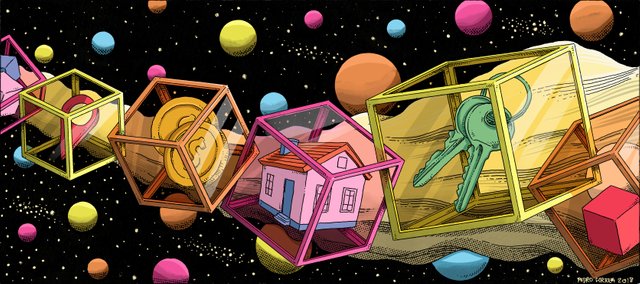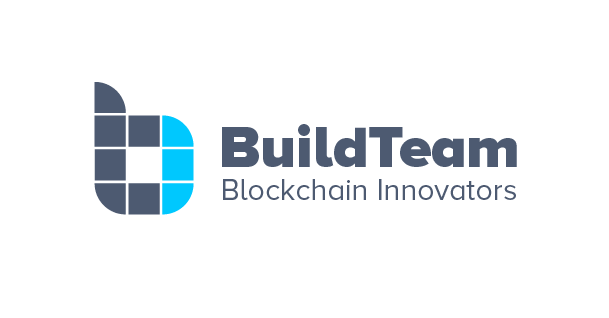Tech Report: How Blockchain Could Be Disruptive to Property Rights

Blockchain is still in its infancy but just looking at what has happened in the past decade in regard to its evolution is quite impressive. First, there was Bitcoin which effectively became a new standard as a transparent digital store of value. Then came Ethereum which did the same thing in a sense but allowed other projects to piggyback upon its chain and launch their own Ethereum backed ICO tokens. Now, the limits of contract law are providing an opportunity that technologists would like to exploit, the same way bitcoin has found a home at the edge of the financial system.
Ownership is an interesting concept considering the nature of human beings and the universe. Nothing is permanent but the illusion of permanence is what provides stability for societies to thrive upon. One of the most ancient forms of contracts revolves around real estate. The concept of owning land through a formal contract.
Some of the first laws found in history revolve around ownership. Ancient Mesopotamian codices include phrases like, “this house belongs to [insert ancient sounding name here] and his sons forever.” The Tenth Commandment states, “Thou shalt not covet thy neighbor’s house,” so the idea of land possession existed in ancient Israel as well.
Land obviously has immense value, for the security it provides and the production it enables. But the value of land is locked into ownership rights. There are different, independent rights of ownership that are collectively referred to in real estate law as the bundle of rights.
The first, most primitive right is the right of possession. On a basic human-need level this is the most obvious value of land: a place to inhabit. After that there are other fundamental rights like the right of enjoyment, the right of control and the right of exclusion.
When we look at modern leases, the majority of today's residential leases offer the tenant a right to possession and enjoyment while leaving the property owner the right of control. The tenant also gets the right of exclusion, but this right does not apply to the owner, who is allowed to enter the property as long as sufficient notice is given.
There is another right, which is a little less straightforward, called the right of disposition. It lets the holder sell, rent or transfer a property at will. Sublease clauses are one way to give a tenant at least part of the right of disposition, but they don’t give him or her the ability to sell or transfer the lease without permission. Most homeowners probably don’t realize they’ve never had the full right of disposition, instead trading it for the ability to secure a mortgage.
Obviously, things get more difficult when you get entangled in the banking system and hold a mortgage. You are borrowing money and in turn, the bank needs security, usually amounting to it holding the title until the debt is paid.
The limits of real estate contract law allow an opportunity that technologists are now looking to exploit, the same way cryptocurrencies like bitcoin are finding a home at the edge of the financial system. The meteoric rise of bitcoin, both in monetary value and as a piece of the collective conversation, has put blockchain technology in the public eye. But the technology is only in its infancy. If and when it gets fully adopted into our real estate system, it has the power to completely transform the way we think about property ownership rights.
This is an intersting use case for blockchain and one I believe will be worked upon shortly. We will see new blockchain based contract systems which may offer more flexibility in regard to land rights. We may see token based real estate contracts springing up which offer shared ownership. This is a very interesting proposition!
In a way, the communal ownership rights that technology is enabling harkens back to the original way humans shared land. It creates a sense of membership in a tribe that, as WeWork has shown, can be much more valuable than the property itself.
Shall we return to a more tribal nature in which ownership is more based on communities versus the individual? That may be where we are headed... What are your thoughts about this concept? Please leave feedback and comments below.
Source:
Blockchain tech could totally disrupt property ownership rights - Inman

I am a technology writer and marketing advisor for the ADSactly Society:

I'm proud to be a supporter, patron and builder of the @MinnowBooster @Steemvoter and @BuildTeam projects:

https://www.minnowbooster.com/vote-selling/?ref=1611


To listen to the audio version of this article click on the play image.

Brought to you by @tts. If you find it useful please consider upvoting this reply.
If we are able to have a more immediate connection to the properties in which we live, work and play, we might see the emergence of a different attitude toward the buildings around us. This is all because technology has been able to separate the bundle of rights that has, for various reasons, been stuck together since the invention of land ownership.
Correct but oddly familiar... I feel like I have read this already? Did you copy paste this?
Very Good.... Brother This Is Important Information Share..
Agreed. Happy you feel that way too.